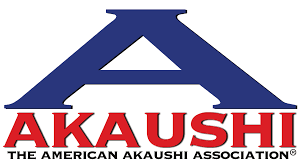- Provide cash for the payment of debts, funeral expenses, probate fees, medical expenses, estate taxes, etc. Having cash to pay these expenses may prevent heirs from being forced to sell assets in order to pay these costs.
- Provide cash to children who are not inheriting a family farm or ranch as a means of equalizing inheritance with a child or children who are inheriting a family farm or ranch.
- Provide cash for funding a buy-sell agreement between business partners or shareholders. Life insurance proceeds are used to buy out the deceased partner’s share of a business.
- Provide cash for wealth replacement for heirs when a charitable remainder trust is used to avoid tax on the sale of farm or ranch property.
Ownership of life insurance
Many agricultural families own life insurance so their kids will have money to pay estate taxes and other costs associated with their death.
Having cash to pay these expenses may prevent the kids from being forced to sell part of the ranch to pay these expenses.
What many people don’t realize, however, is that if they own their life insurance policy, a significant amount of the proceeds may end up going to the IRS.
While it is true that life insurance proceeds are usually received income tax-free, they are not estate tax-free.
There are ownership dilemmas associated with life insurance which impact whether or not the life insurance proceeds are included in an estate.
The IRS states that if a person has any “incidents of ownership” in a life insurance policy, the proceeds will be included in their estate at death.
Incidents of ownership can include the right to borrow on a policy’s cash value, to change the policy’s beneficiary, to change a settlement option and the right to change the dividend selection.
There are two primary means of keeping life insurance proceeds from being included in your estate. The first is to have an adult child or children own the policy. The second (and preferred) method is to have the policy owned in an irrevocable life insurance trust.
Irrevocable life insurance trust (ILIT)
An ILIT is a type of trust designed to own life insurance. There are three good reasons to utilize an ILIT. The first is for estate tax considerations, the second is for concern of leaving a large sum of money unsupervised to a minor or an irresponsible adult, and the third is for asset protection concerns.
If an ILIT is structured properly, the death benefits paid to the trust will be free from inclusion in the gross estate of the insured.
If the insured has beneficiaries that are minors or adults that aren’t good with money, it might be wise to set up an ILIT with the trust as beneficiary.
This appoints a trustee to act as a supervisor for the trust and distribute the assets per the terms of the trust documents as per the grantor’s wishes.
An ILIT can also provide asset protection. ILITs are not considered to be owned by the beneficiaries. This makes it difficult for courts or creditors to access the assets in the ILIT.
Life insurance trust assets are excluded from estate tax only when the following conditions are met:
- The ILIT must own the policy.
- The ILIT must be the beneficiary of the policy.
- The insured may not retain any incidents of ownership in the policy.
- The ILIT must be irrevocable.
- The ILIT must be established during the insured’s lifetime.
- The trustee is not allowed to use ILIT assets for the benefit of the estate.
Children as owners of a life insurance policy
Another method that may enable life insurance proceeds to be excluded from your estate is to have your adult children own the policies.
Under this arrangement, you could gift an amount each year to your child or children to cover the annual premium and they would pay the premium themselves. Some potential problems with this arrangement are:
- Your child or children control the policy and could make changes that aren’t consistent with your desires.
- If one of your children is involved in a divorce, their spouse could claim the policy is community property.
- If one of your children precedes you in death, your child’s disposition of the interest in the policy to his or her spouse, for example, might not be the same as what you would have wanted.
For example, in this event you may have provided that your grandchildren receive the benefit.
Life insurance can be an effective tool for an agricultural family. There are many types of life insurance polices and many ways of structuring policies for achieving one’s goals.
There are also serious tax ramifications associated with the ownership of life insurance.
It is important to work with an experienced independent agent and to involve the assistance of an estate planning attorney. For more information, request the wealth guide titled: Life Insurance: An Effective Estate Planning Tool for the Agricultural Family. ![]()
For more information, visit: Solid Rock Wealth Management and Solid Rock Reality Advisors or call 406-582-1264.








